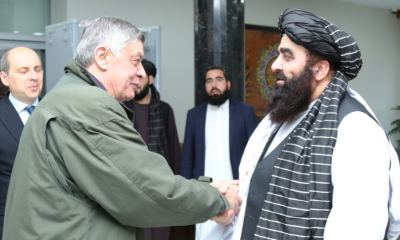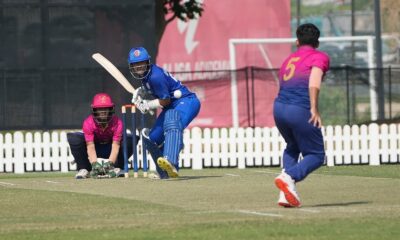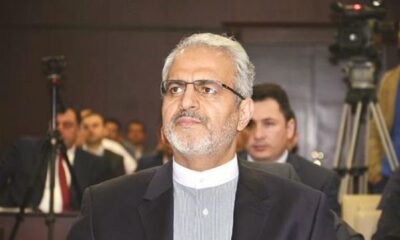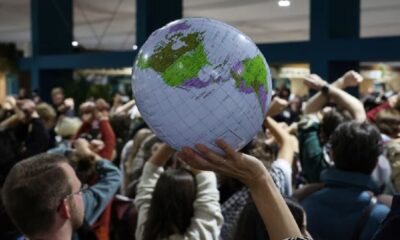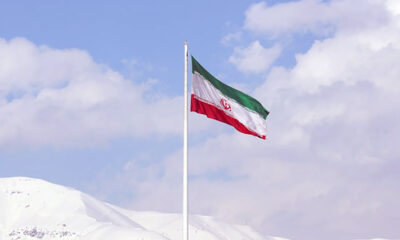Latest News
Human Rights Watch accuses Israel of ‘apartheid’ crimes against Palestinians
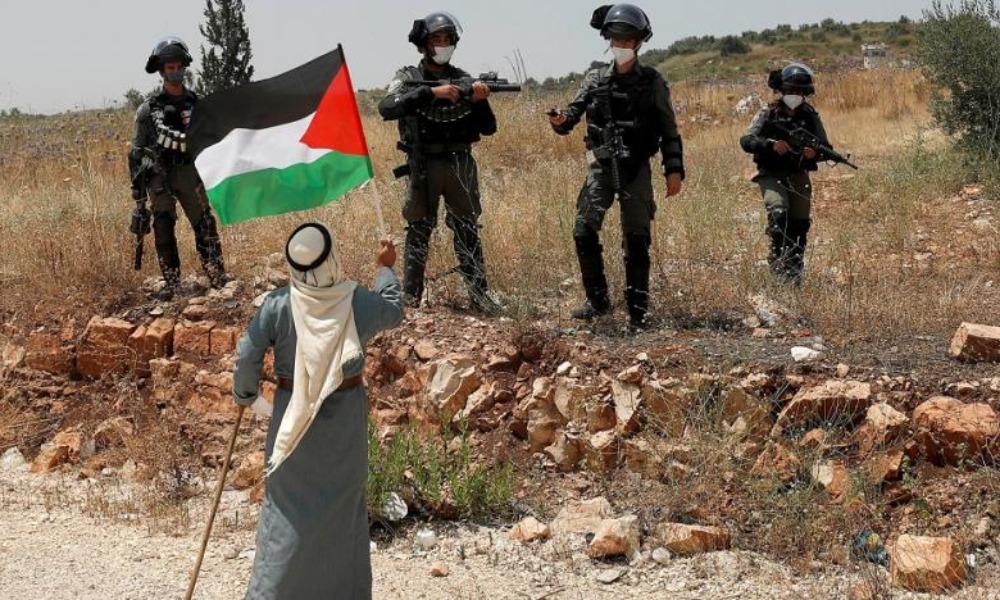
An international rights watchdog accused Israel on Tuesday of pursuing policies of apartheid and persecution against Palestinians - and against its own Arab minority - that amount to crimes against humanity.
New York-based Human Rights Watch published a 213-page report which, it said, was not aimed at comparing Israel with apartheid-era South Africa but rather at assessing "whether specific acts and policies" constitute apartheid as defined under international law.
Israel's foreign ministry rejected the claims as "both preposterous and false" and accused HRW of harbouring an "anti-Israeli agenda," saying the group had sought "for years to promote boycotts against Israel".
Just weeks ago the International Criminal Court (ICC) announced it would investigate war crimes in the Israeli-occupied West Bank and Gaza Strip, with the Israeli military and armed Palestinian groups such as Hamas named as possible perpetrators.
In its report, HRW pointed to Israeli restrictions on Palestinian movement and seizure of Palestinian-owned land for Jewish settlement in territory occupied in the 1967 Middle East war as examples of policies it said were crimes of apartheid and persecution.
"Across Israel and the (Palestinian territories), Israeli authorities have pursued an intent to maintain domination over Palestinians by exercising control over land and demographics for the benefit of Jewish Israelis," the report says.
"On this basis, the report concludes that Israeli officials have committed the crimes against humanity of apartheid and persecution," as defined under the 1973 Apartheid Convention and the 1998 Rome Statute.
BOYCOTT ACCUSATIONS
Israeli officials fiercely object to apartheid accusations.
"The purpose of this spurious report is in no way related to human rights, but to an ongoing attempt by HRW to undermine the State of Israel's right to exist as the nation state of the Jewish people," Strategic Affairs Minister Michael Biton said.
Israel's foreign ministry said HRW's Israel programme was being "led by a known (BDS) supporter, with no connection to facts or reality on the ground," referring to the pro-Palestinian Boycott, Divestment and Sanctions movement.
The report's author, HRW Israel and Palestine Director Omar Shakir, was expelled from Israel in 2019 over accusations he backs BDS.
Shakir denies that his HRW work and pro-Palestinian statements he made before being appointed to the HRW post in 2016 constitute active support for BDS.
Shakir told Reuters that HRW would send its report to the ICC prosecutor's office, "as we normally do when we reach conclusions about the commissions of crimes that fall within the Court's jurisdiction."
He said HRW also sent the ICC its 2018 report about possible crimes against humanity by President Mahmoud Abbas's Palestinian Authority and the Islamist militant Hamas.
ICC PROBE
The International Criminal Court's prosecutor said in March that she would formally investigate war crimes in the Palestinian territories, after ICC judges ruled that the court had jurisdiction there.
The Palestinian Authority welcomed the ruling but Israeli Prime Minister Benjamin Netanyahu denounced it as anti-Semitism and said Israel does not recognise the court's authority.
HRW called on the ICC prosecutor to "investigate and prosecute individuals credibly implicated" in apartheid and persecution.
HRW also said Israel's 2018 "nation state" law - declaring that only Jews have the right of self-determination in the country - "provides a legal basis to pursue policies that favour Jewish Israelis to the detriment" of the country's 21% Arab minority, who regularly complain of discrimination.
Palestinians seek the West Bank, Gaza and East Jerusalem, areas captured in the 1967 conflict, for a future state.
Under interim peace deals with Israel, Palestinians have limited self-rule in the West Bank; Hamas runs Gaza.
Latest News
A high-level Russian delegation will soon visit Kabul: envoy
Kabulov and Muttaqi discussed bilateral relations between Afghanistan and Russia, especially economic cooperation, investment and transit

Russia’s Special Representative for Afghanistan Zamir Kabulov said in a meeting with Acting Foreign Minister Amir Khan Muttaqi in Kabul that a high-level Russian delegation will visit Kabul in the near future to discuss the expansion of bilateral cooperation with the Islamic Emirate.
Kabulov and Muttaqi discussed bilateral relations between Afghanistan and Russia, especially economic cooperation, investment and transit, the Foreign Ministry said in a statement.
Muttaqi described the relations between the Islamic Emirate and Russia as important, stressing that the ties should be expanded to include economic and trade cooperation.
He said visits to Kabul by high-level officials was important, adding that during the past year, many officials of the Islamic Emirate have been invited to Russia to attend international meetings.
Meanwhile, the Russian diplomat said that his country wants to expand its relations with Afghanistan in the economic and trade sectors.
This comes on the heels of Russian Deputy Foreign Minister Andrey Rudenko’s comments that the completion of legal procedures to remove the Islamic Emirate from Moscow’s terrorist list will provide positive impetus to Russian-Afghan relations.
In an interview with Russia’s TASS news agency, published early Sunday, Rudenko said “removing the terrorist organization’s status from the Taliban Movement (Islamic Emirate) will attribute a positive impetus to Russian-Afghan interaction in various spheres, in the economy in the first instance."
"As regards the issue of the official recognition of current Afghan authorities, it is early to talk about it thus far. Let’s act gradually, step by step, but we do not intend to artificially impede the processes," Rudenko noted.
Russia has been slowly building ties with the Islamic Emirate since it regained power in Afghanistan in August 2021 but the IEA is still officially outlawed in Russia.
In response to Russia’s comments last month, the IEA’s acting foreign minister Amir Khan Muttaqi said the Islamic Emirate “appreciates the positive remarks by the high-ranking officials of the Russian Federation in this regard and hope to see more effective steps soon."
Latest News
Iran appoints new ambassador to Afghanistan
Ali Reza Begdeli, Iran’s former deputy foreign minister for consular affairs, has been appointed as the country’s new ambassador to Kabul
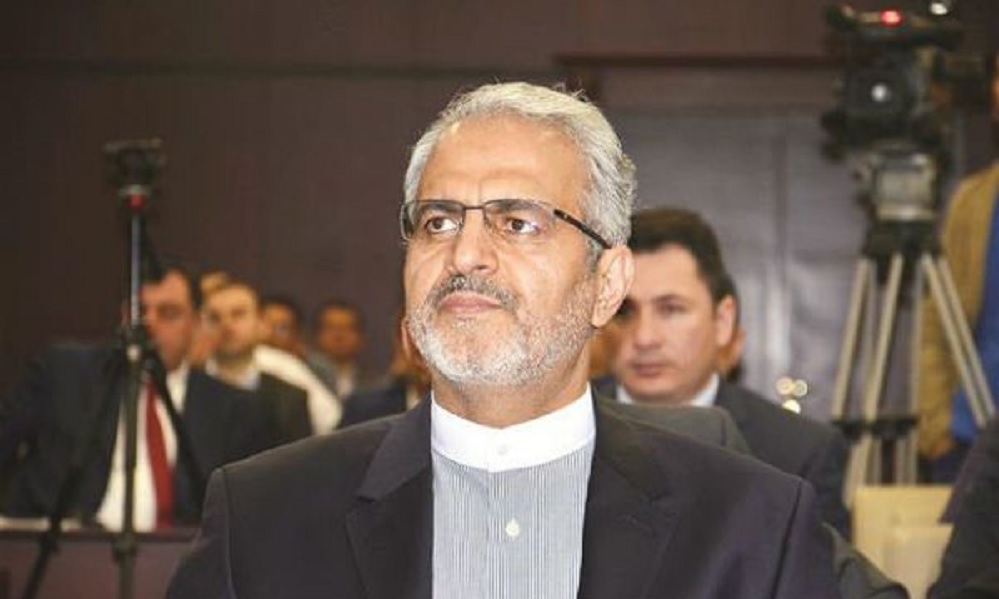
Ali Reza Begdeli, Iran's former deputy foreign minister for consular affairs, has been appointed as the country's new ambassador to Kabul, Mehr news agency reported on Sunday.
The outlet added that the post of the Iranian presidential special representative in Afghanistan has been removed and, as before, the special representative for Afghanistan will act directly under the supervision of the foreign minister.
It is worth mentioning that Hassan Kazemi Qomi previously served as Iran's ambassador and presidential special representative in Afghanistan.
Latest News
Iran to Host ECO Ministerial Meeting next week
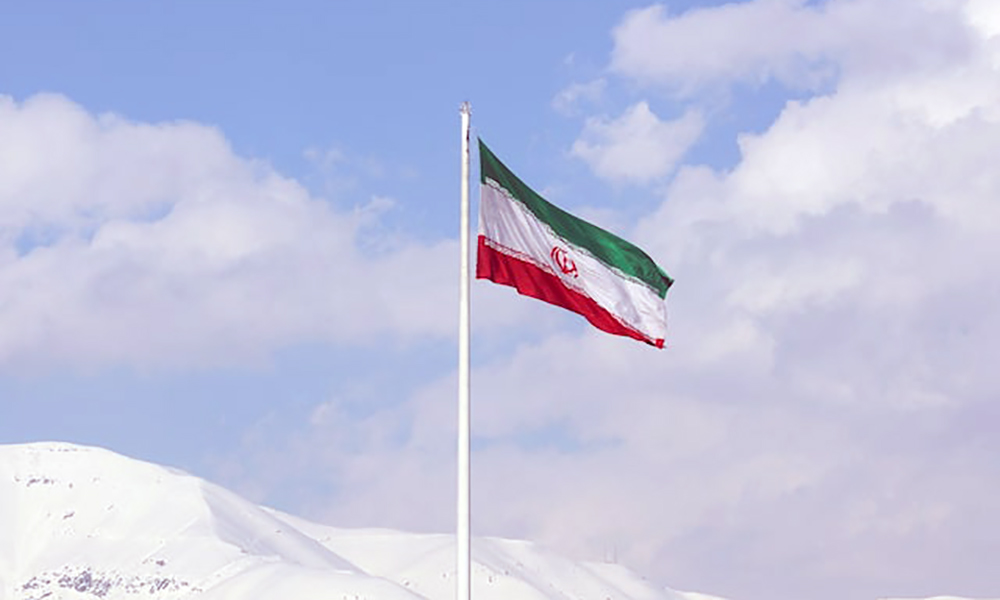
The 28th meeting of the foreign ministers of the Economic Cooperation Organization (ECO) member states will be held in Iran’s northeastern city of Mashhad next week.
Spokesperson for the Iranian Foreign Ministry Esmaeil Baqaei said on Sunday that the upcoming meeting will be attended by the ministers and senior officials of ECO, directors of the regional specialized departments of the organization, and the secretaries general of a number of multilateral economic organizations.
The meeting will be chaired by Iranian Foreign Minister Abbas Araqchi, Iranian local media reported.
Iran is holding the rotating presidency of ECO in 2024.
The Tehran-headquartered ECO was established by Iran, Pakistan, and Turkey in 1985.
The main purpose of the organization is to promote economic, technical, and cultural cooperation among the member states.
In 1992, the organization was expanded to include seven new members, namely Afghanistan, Republic of Azerbaijan, Kazakhstan, Kyrgyzstan, Tajikistan, Turkmenistan and Uzbekistan.
-

 Latest News5 days ago
Latest News5 days agoEU marks International Children’s Day, says it supports Afghan children
-

 Latest News3 days ago
Latest News3 days agoU.S. House approves bill on evacuation of Afghan allies
-

 Sport3 days ago
Sport3 days agoAriana News to broadcast IPL auction live and exclusively in Afghanistan
-
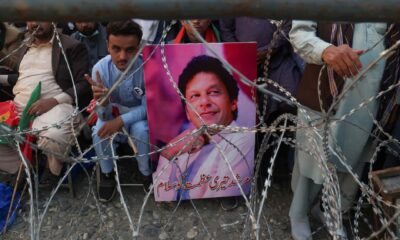
 Regional4 days ago
Regional4 days agoPakistan’s ex-PM Imran Khan gets bail in state gifts case, his party says
-
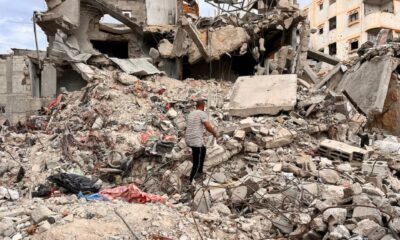
 World4 days ago
World4 days agoUS vetoes UN Security Council resolution on Gaza ceasefire
-

 Latest News4 days ago
Latest News4 days agoUN moves to unlock stuck climate financing for Afghanistan
-
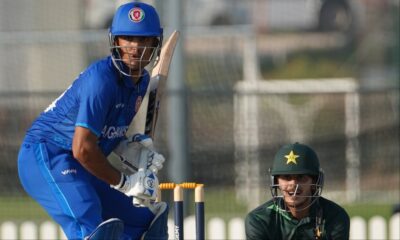
 Sport4 days ago
Sport4 days agoPakistan trumps Afghanistan by only 13 runs in U19 Tri-Series One Day match
-
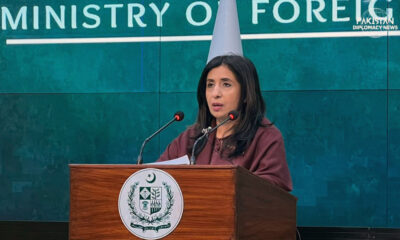
 Latest News3 days ago
Latest News3 days agoPakistan rejects suggestion of appointing a new special envoy for Afghanistan


